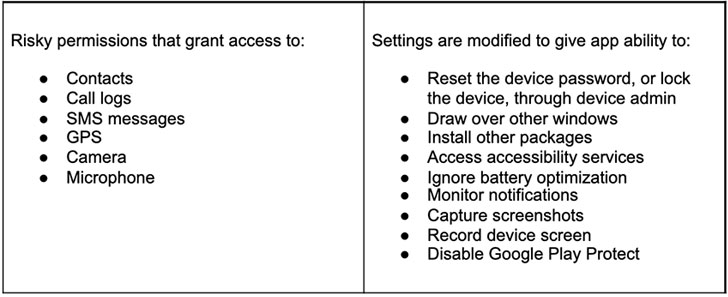An unidentified threat actor has been linked to a new Android
malware strain that features the ability to root smartphones and
take complete control over infected smartphones while
simultaneously taking steps to evade detection.
The malware has been named “AbstractEmu[1]” owing to its use of
code abstraction and anti-emulation checks to avoid running while
under analysis. Notably, the global mobile campaign is engineered
to target users and infect as many devices as possible
indiscriminately.
Lookout Threat Labs said it found a total of 19 Android applications[2]
that posed as utility apps and system tools like password managers,
money managers, app launchers, and data saving apps, seven of which
contained the rooting functionality. Only one of the rogue apps,
called Lite Launcher, made its way to the official Google Play
Store, attracting a total of 10,000 downloads before it was
purged.
The apps are said to have been prominently distributed via
third-party stores such as the Amazon Appstore and the Samsung
Galaxy Store, as well as other lesser-known marketplaces like
Aptoide and APKPure.
“While rare, rooting malware is very dangerous. By using the
rooting process to gain privileged access to the Android operating
system, the threat actor can silently grant themselves dangerous
permissions or install additional malware — steps that would
normally require user interaction,” Lookout researchers said.
“Elevated privileges also give the malware access to other apps’
sensitive data, something not possible under normal
circumstances.”
Once installed, the attack chain is designed to one of five
exploits for older Android security flaws that would allow it to
gain root permissions and take over the device, extract sensitive
data, and transmit to a remote attack-controlled server —
Lookout attributed the mass distributed rooting malware campaign
to a “well-resourced group with financial motivation,” with
telemetry data revealing that Android device users in the U.S. were
the most impacted. The ultimate objective of the infiltrations
remains unclear as yet.
“Rooting Android or jailbreaking iOS devices are still the most
invasive ways to fully compromise a mobile device,” the researchers
said, adding “mobile devices are perfect tools for cyber criminals
to exploit, as they have countless functionalities and hold an
immense amount of sensitive data.”
References
- ^
AbstractEmu
(blog.lookout.com) - ^
19
Android applications (www.lookout.com)



